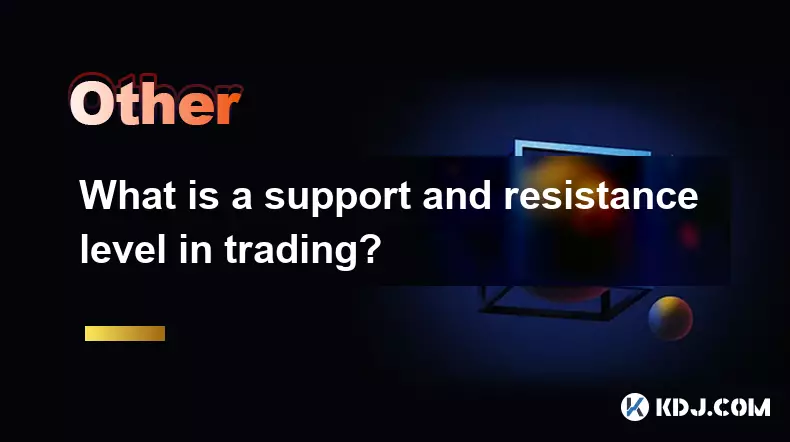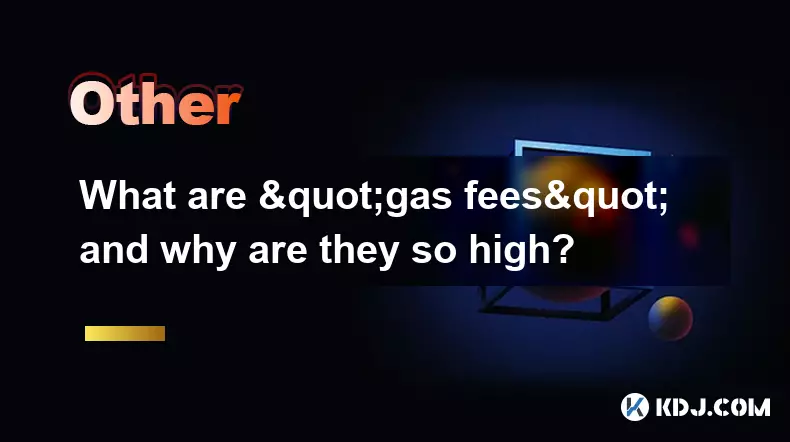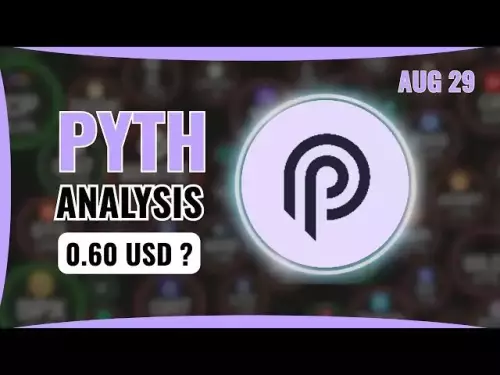-
 Bitcoin
Bitcoin $108500
-3.65% -
 Ethereum
Ethereum $4332
-3.85% -
 XRP
XRP $2.842
-4.58% -
 Tether USDt
Tether USDt $1.000
0.00% -
 BNB
BNB $860.0
-0.93% -
 Solana
Solana $206.7
-1.88% -
 USDC
USDC $0.9998
-0.01% -
 Dogecoin
Dogecoin $0.2142
-3.02% -
 TRON
TRON $0.3348
-2.45% -
 Cardano
Cardano $0.8296
-3.33% -
 Chainlink
Chainlink $23.53
-4.79% -
 Hyperliquid
Hyperliquid $44.97
-6.27% -
 Ethena USDe
Ethena USDe $1.000
-0.01% -
 Sui
Sui $3.314
-4.21% -
 Stellar
Stellar $0.3604
-5.33% -
 Bitcoin Cash
Bitcoin Cash $534.8
-3.53% -
 Avalanche
Avalanche $23.63
-3.55% -
 Hedera
Hedera $0.2266
-4.76% -
 Cronos
Cronos $0.2758
-12.86% -
 UNUS SED LEO
UNUS SED LEO $9.436
-1.26% -
 Litecoin
Litecoin $110.5
-1.82% -
 Toncoin
Toncoin $3.075
-2.80% -
 Shiba Inu
Shiba Inu $0.00001216
-3.00% -
 Polkadot
Polkadot $3.785
-4.28% -
 Uniswap
Uniswap $9.578
-2.94% -
 Dai
Dai $1.000
-0.01% -
 Bitget Token
Bitget Token $4.528
-1.71% -
 Monero
Monero $261.4
-2.87% -
 Aave
Aave $312.2
-1.24% -
 Ethena
Ethena $0.6512
-0.63%
What does HODL, FUD, and FOMO mean?
HODL, FUD, and FOMO are essential crypto slang terms that reflect investor mindset, market manipulation, and emotional trading behavior in digital asset communities.
Aug 29, 2025 at 06:19 pm

Fundamental Cryptocurrency Slang Every Trader Should Know
Cryptocurrency communities thrive on unique terminology that reflects the culture, sentiment, and behavior within the market. Understanding key slang terms is essential for navigating discussions, social media, and trading strategies. Three of the most frequently used acronyms—HODL, FUD, and FOMO—carry significant weight in shaping investor psychology and market trends.
What HODL Represents in the Crypto Space
- HODL originated from a typo in a 2013 Bitcoin forum post titled 'I AM HODLING,' where a user meant to write 'holding' during a market crash.
- The term evolved into a rallying cry for long-term investors who refuse to sell despite market volatility.
- HODL signifies a belief in the long-term value of an asset, often in defiance of short-term price drops.
- It reflects a strategy of enduring bear markets with the expectation that prices will recover and surpass previous highs.
- Many crypto enthusiasts display HODL as a badge of loyalty, especially toward Bitcoin and other established digital assets.
The Impact of FUD on Market Sentiment
- FUD stands for Fear, Uncertainty, and Doubt, describing negative narratives spread to influence market perception.
- This can include exaggerated reports about regulatory crackdowns, security breaches, or technological flaws in blockchain projects.
- FUD often triggers panic selling, leading to sharp price declines even when fundamentals remain strong.
- Influencers, media outlets, or competing projects may intentionally spread FUD to manipulate prices or discredit rivals.
- Savvy investors learn to distinguish between legitimate concerns and baseless FUD to avoid emotional decision-making.
How FOMO Drives Buying Behavior
- FOMO, or Fear of Missing Out, occurs when investors rush to buy an asset after seeing rapid price increases.
- Social media trends, celebrity endorsements, and viral news can amplify FOMO, pushing prices into speculative bubbles.
- FOMO-driven purchases often lack fundamental analysis and are based purely on momentum.
- This behavior is common during bull runs, where assets like meme coins experience explosive growth due to hype.
- Traders caught in FOMO cycles may enter positions at peak prices, increasing the risk of significant losses when the trend reverses.
Common Questions About Crypto Slang
What is the origin of the term HODL? HODL began as a misspelled post on a Bitcoin forum in 2013. A user wrote 'I AM HODLING' instead of 'holding' during a price crash. The post became legendary, and the term was embraced as a symbol of resilience in volatile markets.
Can FUD be based on real events? Yes, FUD can stem from genuine developments such as government regulations or exchange hacks. However, the term is typically used when the reaction is disproportionate or used to manipulate market sentiment rather than reflect objective risk.
Is FOMO always harmful in trading? While FOMO can lead to impulsive and poorly timed trades, it sometimes results in gains during strong upward trends. The danger lies in acting without research, relying solely on emotion, and failing to set exit strategies.
Are these terms used outside the crypto world? FOMO and FUD existed before cryptocurrency, but HODL is unique to the crypto community. Over time, all three have gained broader usage in financial and internet culture, though their meanings are most deeply rooted in digital asset trading.
Disclaimer:info@kdj.com
The information provided is not trading advice. kdj.com does not assume any responsibility for any investments made based on the information provided in this article. Cryptocurrencies are highly volatile and it is highly recommended that you invest with caution after thorough research!
If you believe that the content used on this website infringes your copyright, please contact us immediately (info@kdj.com) and we will delete it promptly.
- PEPE Price: Technical Indicators Paint a Mixed Outlook – Should You Buy?
- 2025-08-29 23:50:12
- Algorand (ALGO): Navigating Support Tests and Bullish Signals
- 2025-08-29 23:55:12
- Pi Coin's Bullish Signs: Eyes on $0.365 Breakout and Beyond!
- 2025-08-29 21:50:12
- Bitcoin, Digital Health, Crypto Convergence: A New Era of Economic Resilience
- 2025-08-29 21:05:17
- BlockchainFX & Meme Coins: What's the Deal in 2025?
- 2025-08-29 19:05:12
- XRP Price Primed for Massive Rally? Raoul Pal Weighs In
- 2025-08-29 17:25:13
Related knowledge

What is a "vampire attack" in DeFi?
Aug 29,2025 at 09:36pm
Understanding the Concept of Vampire Attacks in DeFi1. A vampire attack in the decentralized finance (DeFi) space refers to a strategic effort by one ...

What is a support and resistance level in trading?
Aug 29,2025 at 07:00pm
Understanding Support and Resistance in Market Dynamics1. Support and resistance levels are foundational concepts in technical analysis, widely used b...

What are "diamond hands" and "paper hands"?
Aug 29,2025 at 09:54pm
Diamond Hands: The Mindset of Holding Through Volatility1. Diamond hands refer to the psychological resilience of holding onto cryptocurrency assets d...

What does HODL, FUD, and FOMO mean?
Aug 29,2025 at 06:19pm
Fundamental Cryptocurrency Slang Every Trader Should KnowCryptocurrency communities thrive on unique terminology that reflects the culture, sentiment,...

What are "gas fees" and why are they so high?
Aug 29,2025 at 08:54pm
Understanding Gas Fees in the Cryptocurrency Ecosystem1. Gas fees are payments made by users to compensate for the computational energy required to pr...

How many confirmations are needed for a crypto transaction?
Aug 29,2025 at 10:18pm
Understanding Blockchain Confirmations in Cryptocurrency Transactions1. When a cryptocurrency transaction is broadcast to the network, it enters a poo...

What is a "vampire attack" in DeFi?
Aug 29,2025 at 09:36pm
Understanding the Concept of Vampire Attacks in DeFi1. A vampire attack in the decentralized finance (DeFi) space refers to a strategic effort by one ...

What is a support and resistance level in trading?
Aug 29,2025 at 07:00pm
Understanding Support and Resistance in Market Dynamics1. Support and resistance levels are foundational concepts in technical analysis, widely used b...

What are "diamond hands" and "paper hands"?
Aug 29,2025 at 09:54pm
Diamond Hands: The Mindset of Holding Through Volatility1. Diamond hands refer to the psychological resilience of holding onto cryptocurrency assets d...

What does HODL, FUD, and FOMO mean?
Aug 29,2025 at 06:19pm
Fundamental Cryptocurrency Slang Every Trader Should KnowCryptocurrency communities thrive on unique terminology that reflects the culture, sentiment,...

What are "gas fees" and why are they so high?
Aug 29,2025 at 08:54pm
Understanding Gas Fees in the Cryptocurrency Ecosystem1. Gas fees are payments made by users to compensate for the computational energy required to pr...

How many confirmations are needed for a crypto transaction?
Aug 29,2025 at 10:18pm
Understanding Blockchain Confirmations in Cryptocurrency Transactions1. When a cryptocurrency transaction is broadcast to the network, it enters a poo...
See all articles

























































































